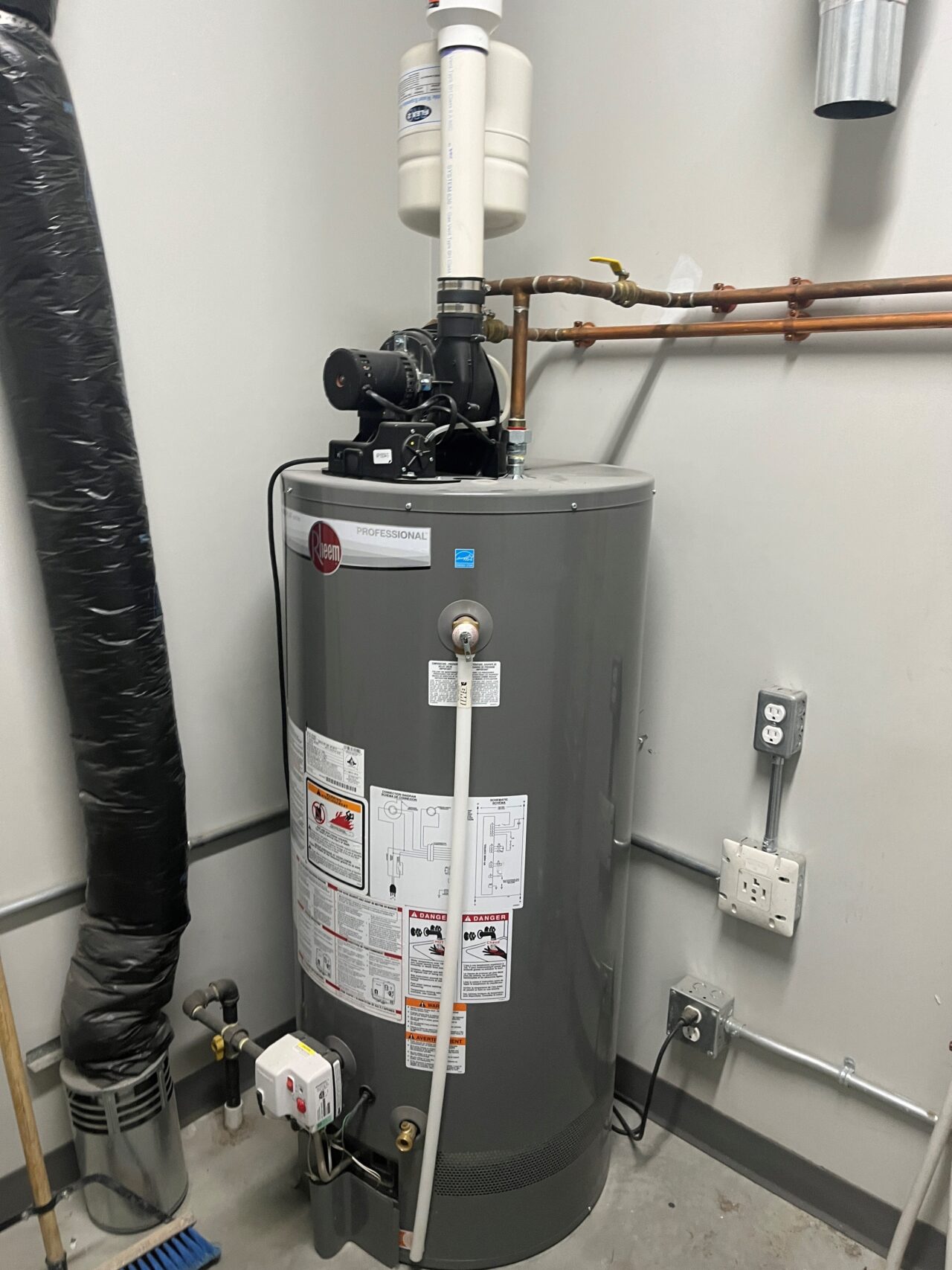Is your hot water smelling bad? Whether it’s a rotten egg odor or a musty smell, foul odors in your hot water tank are not just unpleasant—they can be signs of a larger issue. In this post, we’ll explain why your hot water might smell and what you can do to resolve it.
Why Does My Hot Water Smell?
When you start noticing an unpleasant odor coming from your hot water, it’s important to understand what could be causing the issue. The two most common causes of smelly hot water is bacteria growth and sediment buildup.
Sulfur Smell: Rotten Egg Odor
If your hot water smells like rotten egg or sulfur-like odor, this is usually caused by a buildup of hydrogen sulfide gas. This gas forms when bacteria inside your hot water tank interact with the tank’s anode rod. Or depending on the mineral content of your water, may have minerals like Sulfur that will produce an order in your water system.
What Causes the Sulfur Smell?
-
-
- Magnesium Anode Rod: In your hot water tank is usually an anode rod, designed to sacrifice itself and corrode the rod rather than your tank. The standard magnesium rod can react with bacteria in your region’s water and create that sulfur odor.
- Bacterial Growth: Certain types of bacteria, such as Desulfovibrio or Clostridium bacteria grow inside your hot water tank and produce the smelly hydrogen sulfide.
-
How to Fix the Rotten Egg or Sulfur Odor
-
-
- Flush the Tank: Flushing your tank can help remove any bacterial buildup or sediment deposits that may be causing the smell.
- Replace the Anode Rod: We both carry and can order a replacement anode rod made from aluminum or zinc which can help reduce the reduce hydrogen sulfide formation.
- Disinfect the Tank: In some cases, a flush isn’t enough and may require a more invasive option like disinfecting the tank to kill any bacteria. This is something that requires much care and can be dangerous, so we recommend calling in the experts.
-
If you’re concerned about the safety or the concentration of bacteria in your water you can learn more about it and how to test your water from the Alberta Government.
Alberta Government – Water Testing
Musty or Mildew-Like Smell
A musty or mildew-like odor from your hot water could be a sign of mold or mildew growth. While this is less common than the sulfur smell, it can still occur if your tank is not properly maintained or is exposed to excessive moisture.
What Causes the Musty Smell?
-
-
- Sediment Buildup: Over time, sediment such as minerals, rust, or scale can accumulate at the bottom of your tank. When left unchecked, this sediment can provide a breeding ground for mold and bacteria.
- Poor Ventilation: If your hot water tank is located in a humid area like a basement, lack of ventilation can encourage mold growth, contributing to the musty smell.
-
How to Fix It
-
-
- Clean the Tank: Flushing your tank regularly to remove sediment buildup is crucial. A sediment filter can also help keep minerals and particles from accumulating.
- Check for Leaks: Ensure that your water tank is sealed properly and that there are no leaks or areas of excessive moisture.
- Ventilate the Area: If your tank is in a damp or poorly ventilated area, make sure there is enough airflow to prevent mold and mildew growth. Consider installing a vent or dehumidifier if needed.
-
Chemical or Metallic Smell
If your hot water smells like chemicals or metal, the issue could be related to high mineral content in the water or corrosion in the tank.
What Causes the Chemical/Metallic Smell?
-
-
- High Iron Levels: Water with a high iron content can leave a metallic smell and even taste in your hot water.
- Corroded Tank: Corrosion in the water heater or plumbing can lead to a chemical smell as the metals break down and react with the water. As well can indicate that the tank could soon have a catastrophic leak.
-
How to Fix a Metallic Smell
-
-
- Install a Water Softener: If you have hard water, installing a water softener can help remove excess minerals that cause the metallic smell. As well as prevent those hard-water spots.
- Inspect the Tank for Corrosion: If you suspect your water heater is corroding, it may be time to replace it. A corroded tank can also leak, which can lead to even more serious problems.
-
When Should You Call a Professional?
While many issues with smelly hot water can be resolved with some basic maintenance, some situations may require professional help. Here’s when to call a plumber or technician:
- If flushing the tank doesn’t resolve the issue.
- If you notice significant sediment buildup or leaks.
- If your tank is old and corroding, or if you suspect a dangerous issue like a gas leak (in the case of gas water heaters).
- If you’re unsure about how to disinfect your tank safely.
If you need help with your hot water tank, contact us today for an inspection, repair or to help restore your clean, fresh-smelling hot water in your home.
Call us at (403) 342-1155 or CLICK HERE for a quote today!


